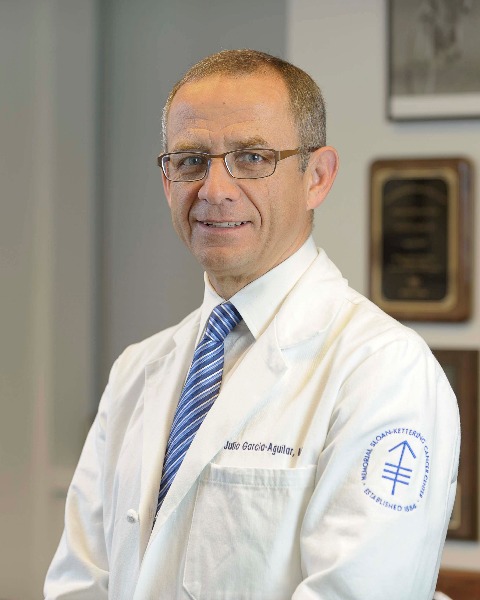Colorectal/GI
CME
21: Organ Preservation, Compliance and Toxicity in Rectal Cancer Patients Treated with Total Neoadjuvant Therapy: A Post Hoc Analysis of the of the OPRA Phase II Trial
.jpg)
Floris Verheij
PhD student
Netherlands Cancer Institute
New York, New York, United StatesDisclosure(s): No financial relationships to disclose
- DO
Dana M. Omer, MD
Research Fellow
Department of Surgery, Memorial Sloan Kettering Cancer Center, United StatesDisclosure information not submitted.
- SL
Sabrina T. Lin, MS
Assistant Research Biostatistician
Department of Epidemiology and Biostatistics, Memorial Sloan Kettering Cancer Center, United StatesDisclosure information not submitted.
- JY
Jonathan B. Yuval, MD
Fellow
Department of Surgery, Memorial Sloan Kettering Cancer Center, United StatesDisclosure information not submitted.
- HT
Hannah M. Thompson, MD
Research Fellow
Department of Surgery, Memorial Sloan Kettering Cancer Center, United StatesDisclosure information not submitted.

Jin K. Kim, MD
Research Fellow
Memorial Sloan Kettering Cancer Center
New York, New York, United StatesDisclosure information not submitted.
- SV
Sebastian C. Valdivieso, MD
Resident
Columbia University College of Physicians and Surgeons, United StatesDisclosure information not submitted.
- LQ
Li-Xuan Qin, PhD
Associate Attending Epidemiology-Biostatistics
Department of Epidemiology and Biostatistics, Memorial Sloan Kettering, United StatesDisclosure information not submitted.
- AW
Abraham J. Wu, MD
Radiation Oncologist
Department of Radiation Oncology, Memorial Sloan Kettering Cancer Center, United StatesDisclosure information not submitted.
- LS
Leonard B. Saltz, MD
Medical Oncologist
Department of Medicine, Memorial Sloan Kettering Cancer Center, United StatesDisclosure information not submitted.

Julio Garcia-Aguilar, MD, PhD
Chief Attending
Memorial Sloan Kettering Cancer Center
New York, NY, United StatesDisclosure information not submitted.
.jpg)
Floris Verheij
PhD student
Netherlands Cancer Institute
New York, New York, United StatesDisclosure(s): No financial relationships to disclose
Abstract Presenter(s)
Author(s)
Author(s)
First Author(s)
Rectal cancer patients treated with total neoadjuvant therapy (TNT) may achieve high rates of organ preservation without detriment to survival. Reports on compliance to TNT and treatment-related toxicities remain limited.
Methods:
We performed a post hoc analysis of the OPRA trial in which patients with clinical stage II/III rectal adenocarcinoma were treated with either induction chemotherapy followed by chemoradiation (INCT-CRT) or chemoradiation followed by consolidation chemotherapy (CRT-CNCT). Patients received either 8 cycles of FOLFOX or 5 cycles of CAPEOX, and >4500 cGy of radiation with capecitabine or fluorouracil. We compared compliance and treatment-related toxicity in patients receiving INCT-CRT and CRT-CNCT. Additionally, we investigated the effect of compliance on organ preservation as well as the relationship between toxicity, organ preservation and disease-free survival.
Results:
Of 324 patients randomized, fewer patients started chemoradiation in the INCT-CRT group (93% vs 98%, P=0.028), and fewer started chemotherapy in the CRT-CNCT group (99% vs 94%, P=0.036). In total, 86% INCT-CRT vs 83% CRT-CNCT, P=0.596 completed all cycles of FOLFOX while 74% INCT-CRT vs 77% CRT-CNCT, P=0.796 completed all cycles of CAPEOX. A total of 95% of INCT-CRT and 98% of CRT-CNCT patients received >4500 cGy radiation (P=0.127). Grade 3+ toxicity was experienced by 121 patients (41% INCT-CRT vs 34% CRT-CNCT, P=0.301). Diarrhea, electrolyte imbalance, enterocolitis, hyperglycemia and neutropenia were most commonly observed. Toxicity was observed more frequent in older patients (62 years vs 56 years; P=0.002), and females (48% vs 31%, P=0.003). Within each group, grade 3+ toxicity was not associated with TME-free survival (P=0.14) or disease-free survival (P=0.65). Compliance to radiotherapy and compliance to ≥90% oxaliplatin and >90% fluoropyrimidine chemotherapy was not associated with organ preservation in multivariable analysis.
Conclusions:
We identified minor differences in treatment compliance between patients treated with INCT-CRT and CRT-CNCT, but these were not associated with differences in organ preservation.
Learning Objectives:
- identify new advances in the (non operative) management of colorectal cancer
- train my presenting skills
- find potential future collaborators for joint research projects in ongoing projects at our institute
